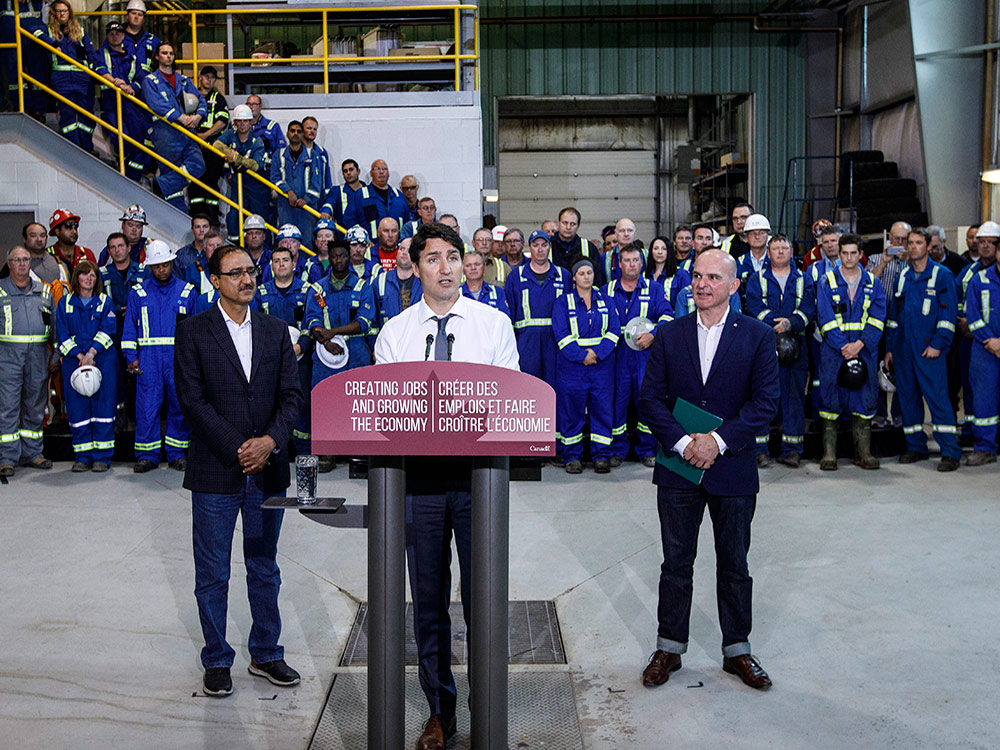Gwyn Topham
Fri, 15 September 2023

Photograph: James D Morgan/Getty Images
Train drivers have announced two more days of strikes and an overtime ban across England, timed to bring services to a halt at the start and end of the Conservative party conference.
Members of Aslef will strike on Saturday 30 September and Wednesday 4 October, when the Tories’ conference is taking place in Manchester, meaning virtually no national rail services will run in England on those days.
The overtime ban will be in effect the rest of the week from Friday 29 September and will disrupt trains across the country and cross-border services into Scotland and Wales.
The industrial action directly affects 16 rail companies contracted to the Department for Transport in England.
Mick Whelan, Aslef’s general secretary, said: ‘While we regret having to take this action – we don’t want to lose a day’s pay, or disrupt passengers, as they try to travel by train – the government, and the employers, have forced us into this position. Our members have not, now, had a pay rise for four years.”
Whelan called on ministers, who ultimately dictate the contracts and pay offers made by train companies, to negotiate an end to the long-running pay dispute. He said the union had had no contact with the transport secretary, Mark Harper, since December, adding: “The train companies have told us … they cannot act without his say-so. But he’s hiding.”
He added: “Do you remember Where’s Wally? Well, what we want to know is where’s Harper?”
The transport secretary called the latest strikes “cynical” and “politically motivated”. Posting on the X social media platform, formerly known as Twitter, Harper added: “Train drivers are paid an average of £60k for a 35-hour, 4 day week. There’s an offer on the table to take that up to £65k – and still they strike, putting their own jobs at risk.”
Aslef last met formally with industry figures from the Rail Delivery Group, the body that represents train operators, in April. The strikes will be the drivers’ 12th and 13th 24-hour walkouts since July 2022 in the national pay dispute.
An offer of 8% over two years, tied to changes to working conditions, was dismissed by Aslef earlier this year. The government and industry said it should be put to a full ballot but the union said it would only ballot on an offer it recommended, and drivers have since overwhelmingly voted to continue strikes.
The RMT union, which represents about 20,000 staff working on stations or as onboard crew for the same train operators in England, has yet to confirm if it will also stage strikes during the Conservative conference.
Train drivers’ strike to coincide with Tory annual conference
Aslef members will also ban overtime from September 29 to October 6, which the union said will “seriously disrupt” the rail network.
Mick Whelan, general secretary of Aslef, said: “While we regret having to take this action – we don’t want to lose a day’s pay or disrupt passengers as they travel by train – the Government and employers have forced us into this position.
“Our members have not had a pay rise for four years – since 2019 – and that’s not right when prices have soared in that time.
“Train drivers quite reasonably want to be able to buy now what they could buy four years ago.”
Mr Whelan likened Transport Secretary Mark Harper to “Where’s Wally?”, saying he had made no contact with the union since last December.
“Where’s Mark Harper? He holds the purse strings. The train companies have told us. They say they cannot act without his say-so.”
A spokesperson for the Rail Delivery Group said: “Further strike action by the Aslef leadership will cause more disruption to passengers.
“We want to give our staff a pay increase, but it has always been linked to implementing necessary, sensible reforms that would enhance services for our passengers.
“The union have rejected a fair and affordable offer without putting it to their members, which would take average driver base salaries for a four-day week without overtime from £60,000 to nearly £65,000.
“We ask the Aslef leadership and executive to recognise the very real financial challenge the industry is facing and work with us to deliver a more reliable and robust railway for the future.”
A Department for Transport spokesperson said: “The Government has facilitated fair and reasonable offers to both RMT and Aslef.
“RMT members working for Network Rail accepted their offer months ago and Aslef’s would bring the average train driver’s salary up to £65,000.
“Further strike action will not only put a strain on taxpayers, but risk driving passengers away from the network for good. These strikes will not prevent the need for essential workplace reforms."
Jack Simpson
Sat, 16 September 2023

Aslef general secretary Mick Whelan (centre) with striking rail workers on the picket line outside London Euston station - EDDIE MULHOLLAND for The Telegraph.
Passengers across the UK face further disruption after Aslef announced yet more industrial action.
Members of Aslef, the train drivers’ union, have timed their latest walkouts to disrupt the Conservative Party Conference.
The union has so far, called 12 one-day strikes during its 16-month dispute over pay.
The latest strikes will force 16 train operating companies to cancel all services, while a ban on overtime on separate days will seriously disrupt the network.
Aslef general secretary Mick Whelan said: “While we regret having to take this action – we don’t want to lose a day’s pay, or disrupt passengers, as they try to travel by train – the government, and the employers, have forced us into this position.
Our members have not, now, had a pay rise for four years – since 2019 – and that’s not right when prices have soared in that time.
“Train drivers, perfectly reasonably, want to be able to buy now what they could buy four years ago.”
When are the train strikes?
The Aslef union will hold strikes on:
Saturday, September 30
Wednesday, October 4
Members will stage an overtime ban across the rail network on:
Friday, September 29
From Monday, October 2 to Friday, October 6
Which rail companies are affected?
The train companies affected are:
Avanti West Coast
C2C
Caledonian Sleeper
Chiltern Railways
CrossCountry
East Midlands Railway
Gatwick Express
Greater Anglia
GWR
GTR Great Northern Thameslink
Heathrow Express
Island Line
LNER
Northern Trains
Southeastern
Southern
Gatwick Express
South Western Railway main line
Stanstead Express
SWR depot drivers
TransPennine Express
West Midlands Trains.
Advice for travelling during train strikes
National Rail warns passengers to expect “significant disruption” on strike days. Services are also likely to be disrupted and start later on the day immediately after.
National Rail has recommended that passengers:
Use its Journey Planner. Passengers should check close to the time of each strike date.
Use its Live Trains page for the most up-to-date information about arrivals and departures
Plan ahead and check before you travel. This includes checking your entire journey, especially if you’re travelling on the first and last trains of strike days.
Train station ticket office closures
Nearly all railway station ticket offices are being shut and staff moved on to station platform and concourse duties, according to the Rail Delivery Group (RDG). Ticket office facilities will remain open only at the busiest stations.
Posters are being displayed in stations informing passengers about potential closures. The Government will make the final decision on which offices will be axed following a consultation. It is not known how quickly the first offices will shut, but the closure programme is expected to last for three years.
Why are Aslef striking?
Aslef members are taking industrial action as they push for a pay rise.
The union has criticised the government from failing to meet its negotiating team – general secretary Mick Whelan, assistant general secretary Simon Weller, and executive committee president Dave Calfe.
They last met representatives of the employers, the Rail Delivery Group, under the agreed post-pandemic framework of the Rail Industry Recovery Group, in April.
Mr Whelan added: “Do you remember Where’s Wally? Well, what we want to know is Where’s Harper?
“We last saw the Secretary of State for Transport in December.
“We last saw Huw Merriman, the Rail Minister, in January.
“And we last saw the train companies in April.
“Since then, nothing. Nada. Zilch. Not a letter, not an email, not a text message, not a phone call, not a WhatsApp. Not a word!”




